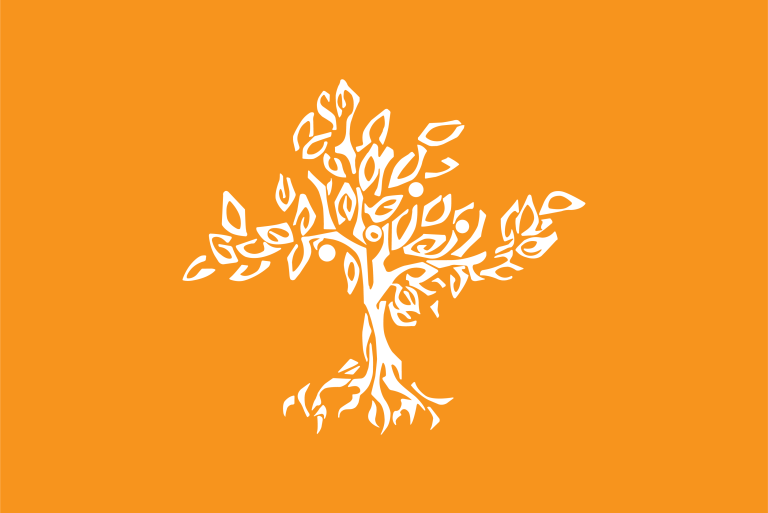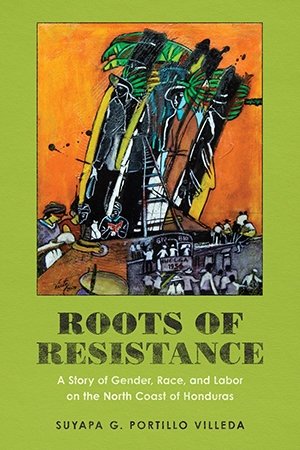Professor Suyapa Portillo Villeda ’96 Wins National Women’s Studies Association Book Prize
Professor Suyapa Portillo Villeda's new book just won the National Women's Studies Association's Sarah A. Whaley Book Prize for 2021.

Claremont, Calif. (October 15, 2021)—When Professor Suyapa Portillo Villeda ’96 began researching the 1954 strike on banana-growing estates in Northern Honduras, she only found a couple of books on the subject. Those works contained valuable information but only “tiny, fleeting” sentences about the role of women.
“I kept wondering, ‘Where are the women?’” Portillo Villeda said. “There’s a dearth of studies on women in labor in Central America—on women in general and, more specifically, working-class women in the first half of the 20th century.”
The book she wrote in response to that question, Roots of Resistance: A Story of Gender, Race, and Labor on the North Coast of Honduras, just won the National Women’s Studies Association’s Sarah A. Whaley Book Prize for 2021. The prize is awarded “for groundbreaking scholarship that makes significant contributions to the topic of labor” and will be presented to Portillo Villeda during a ceremony on October 16. The National Women’s Studies Association (NWSA) promotes and supports the production and dissemination of knowledge.
“I am so proud that the NWSA deemed the story of resistance exemplified by campeñas and campeños (banana workers), including the patronas (women cooks), worthy of the Sarah A. Whaley book prize,” Portillo Villeda said. “I am especially grateful for the recognition of my efforts to amplify the experience of workers during the onset of the Cold War and their complex relationships. It is an honor to highlight these voices in Honduran history to provide depth and context to the resistance movement that formed after the US-backed 2009 coup d’état and recent migrant caravans.”
Roots of Resistance interweaves personal stories with geopolitical power dynamics centered around the 1954 strike, which began in April on banana plantations (or fincas) in northern Honduras and spread to other banana workers in other regions, dockworkers, and even industrial workers, making the 69-day strike a watershed moment in labor mobilization.

Drawing on in-depth oral histories and research in Honduran and US State Department archives, Roots of Resistance explores the 1954 strike and the broader labor movement in Central America. The book also examines how working-class actors, and their organizing, challenged the nation and confronted powerful transnational companies and US intervention in Honduras at the onset of the Cold War.
Published in April by the University of Texas Press, Roots of Resistance tells the previously untold tales of patronas, who created eating establishments on the plantations run by the United Fruit Company (now Chiquita Brands International) and Standard Fruit Company (now Dole Food Company) in the 1950s. The patronas formed an informal workforce that existed completely unregulated by the company but was indispensable to the everyday sustenance of workers and function of the banana plantation.
By examining the roles of the campeñas tied to the banana fincas, Roots of Resistance challenges labor narratives of the United Fruit Company and Standard Fruit Company in Latin America and of the US Embassy and State Department, which Portillo Villeda says focus on the lives of “skilled” workers as the only ones who “organized” unions. Portillo Villeda says the campeñas who worked as patronas “held a middle plane of power” in the finca, between the company and the workers, wielding their power to subsidize the 1954 strike, ensuring the success of the strike. Yet, she says, these workers are “totally forgotten in the folklore narratives and the national narrative of the strike.”
“These women worked really, really hard, serving 20-30 workers three meals a day, getting up at 2 a.m. to grind coffee,” Portillo Villeda said. “When the strike comes around, they allied with the workers, not the company; they saw themselves in the workers.”
The NWSA’s Sara A. Whaley Book Prize recognizes outstanding work that addresses women and labor from intersectional perspectives. Portillo Villeda’s book explores labor in the context of post-Cold War Central America. It spans more than five decades, tying the 1954 strike to the 2009 coup d’état, showing how “US company-led surveillance and persecution did not stifle an exuberant labor movement, which would influence Honduran social movement in years to come.”

An expert on labor history in the Americas, Suyapa Portillo Villeda ’96 is an associate professor of Chicano/a-Latino/a Transnational Studies at Pitzer. She specializes in social movements in Honduras and throughout Central America.
Portillo Villeda is a 2017-18 Fulbright US Scholar Research Fellowship recipient and was awarded a Claremont Colleges Teaching Award in 2018. NPR named her a Source of the Week in 2017 for her reporting on the Honduran elections. Portillo Villeda earned her BA from Pitzer College and her master’s and PhD from Cornell University. Roots of Resistance: A Story of Gender, Race, and Labor on the North Coast of Honduras is her first book.
About Pitzer College
Founded in 1963 as a member of The Claremont Colleges, Pitzer College is an academically rigorous, inclusive liberal arts institution committed to open inquiry, community engagement, and educational access for all students. Rooted in a commitment to social justice, environmental sustainability, and meaningful community engagement, Pitzer empowers students to think boldly, act with purpose, and contribute to a more thoughtful and compassionate world.
News Information
Published
Author
Bridgette Ramirez


